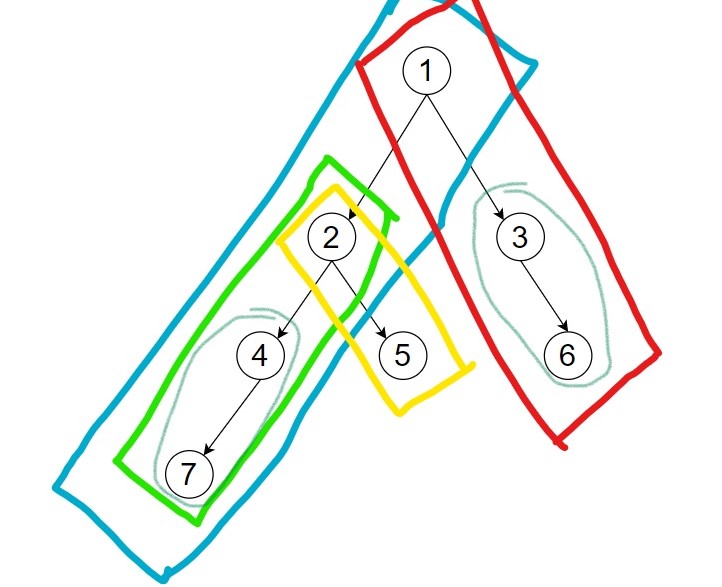Is Height Balanced Binary Tree Problem Statement
Determine if the given binary tree is height-balanced. A tree is considered height-balanced when:
- The left subtree is balanced.
- The right subtree is balanced.
- The height difference between the left and the right subtree is at most 1.
The height of a tree is defined as the maximum number of nodes in the path from the node to any leaf node. An empty tree is balanced by definition.
Input:
The first line contains an integer 'T' denoting the number of test cases. Each test case is a sequence of node values in level order, separated by spaces. Use -1 to signify a non-existent child.
Output:
For each test case, return ‘True’ if the tree is height-balanced, otherwise return ‘False’.
Example:
Consider this binary tree:

The input for this tree in level order might look like:
1 2 3 4 -1 5 6 -1 7 -1 -1 -1 -1 -1 -1
Explanation:
- Level 1: The root node value is 1
- Level 2: Left child of 1 is 2, Right child is 3
- Level 3: Left child of 2 is 4, Right child is none, Left child of 3 is 5, Right child is 6
- Level 4 and beyond: Details the connections to and existence of further child nodes, following similar rules.
For this tree, evaluate each subtree as per the height-balanced conditions outlined.
Constraints:
- 1 ≤ T ≤ 100
- 1 ≤ N ≤ 3000
- -109 ≤ data ≤ 109, data ≠ -1
Note:
The input format eliminates null nodes by replacing them with -1. For ease, input ends when the description of all nodes at a given level are null (-1). Implement the function, no need to handle I/O procedures.

Determine if a binary tree is height-balanced based on subtree heights.
A height-balanced tree has left and right subtrees that are balanced.
The height difference between left and right subtrees must b...read more


Top Software Developer Intern Interview Questions Asked at Josh Technology Group
Interview Questions Asked to Software Developer Intern at Other Companies
Top Skill-Based Questions for Josh Technology Group Software Developer Intern


Reviews
Interviews
Salaries
Users














